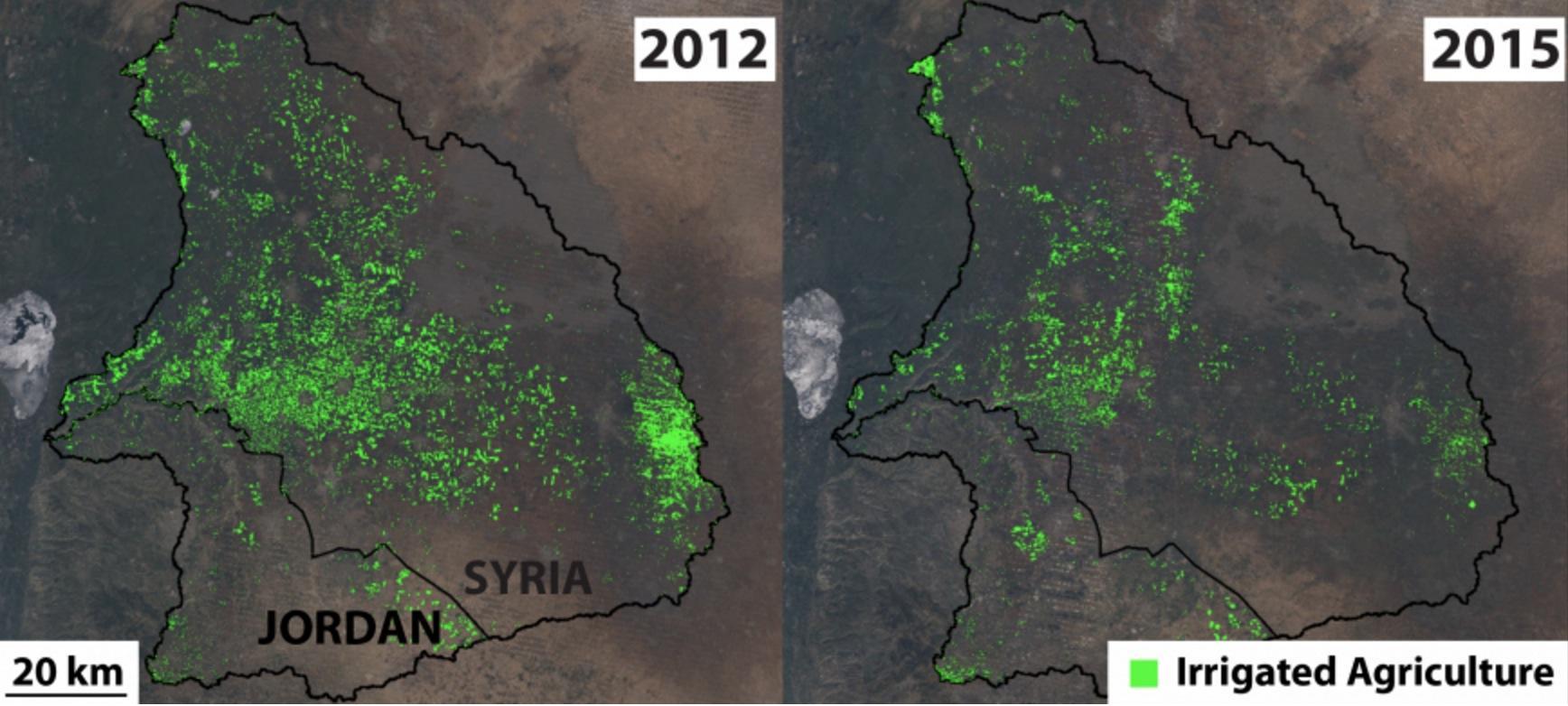Syria's conflict has so severely affected water in the region the damage can be seen from space
Fighting for control of water supplies has plagued the civil war, but new research shows extent of the six-year-long conflict’s impact on rivers in region

Your support helps us to tell the story
From reproductive rights to climate change to Big Tech, The Independent is on the ground when the story is developing. Whether it's investigating the financials of Elon Musk's pro-Trump PAC or producing our latest documentary, 'The A Word', which shines a light on the American women fighting for reproductive rights, we know how important it is to parse out the facts from the messaging.
At such a critical moment in US history, we need reporters on the ground. Your donation allows us to keep sending journalists to speak to both sides of the story.
The Independent is trusted by Americans across the entire political spectrum. And unlike many other quality news outlets, we choose not to lock Americans out of our reporting and analysis with paywalls. We believe quality journalism should be available to everyone, paid for by those who can afford it.
Your support makes all the difference.A new study has found that the civil war in Syria has had a drastic effect on rivers and fresh water resources in both Syria and neighbouring Jordan.
While drought caused by both climate change and resource mismanagement has been a problem in Syria for decades, fighting and forced displacement has turned the issue into a full-scale crisis.
Researchers from Stanford University, unable to collect data on the ground, used composite satellite imagery to assess how water is being used and managed in the active war zone.
The change in river flows was so huge that the effects could be clearly seen in the photos, the study's co-author and principal investigator Professor Steven Gorelick noted.
Mr Gorelick's team found that in the south of the county, there is now so little agricultural activity that the amount of land being irrigated has shrunk by 49 per cent.
The 11 reservoirs in the Syrian-controlled Yarmouk-Jordan River basin, essential for Syria’s agricultural production and all other human activity, have also halved in size over the last three years.
Many of them have been intensely fought over, and reservoirs under rebel control in particular have been badly managed, since the opposition lacks the technical expertise or staff to run them properly.
More than three times as much water than three years ago from the Yarmouk basin now flows into water-poor Jordan.
However, the study noted that the benefits of the precious extra resource in the country are to some extent offset by the demand created by the 1.3million Syrians who have fled to Jordan as refugees.
In September aid agencies warned that Syria’s deteriorating water security would increasingly cause disease and fuel migration, as well as deepen pollution and water scarcity problems over the border in Lebanon.
Currently, fighting in the Wadi Barada valley near Damascus has left 5.5 million people in the capital without water. Rebels turned off some supplies, and others were bombed in government air strikes.
The UN said last week it is worried about potential disease outbreaks in affected areas.
Join our commenting forum
Join thought-provoking conversations, follow other Independent readers and see their replies
Comments